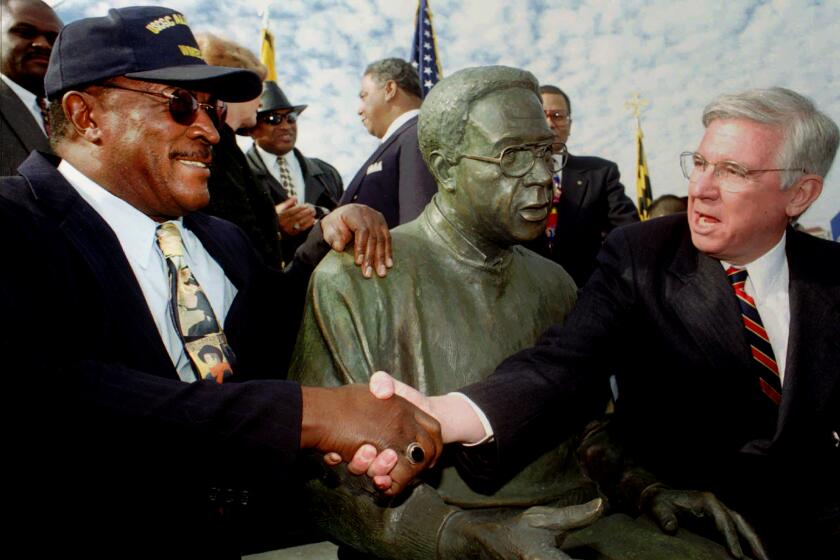Fair Inquiry on Media Violence
President Clinton’s decision Tuesday to open an inquiry into how the entertainment industry markets violent movies, video games and other products to children should not be allowed to turn into a hunt for scapegoats. But it will be useful if it sheds light on negative industry practices and helps parents understand and control influences on their children.
No one is suggesting that Hollywood alone has stoked the violent youth culture that surrounds the recent rash of school shootings in the United States. Myriad social problems, from inadequate public education to failed gun control, are also to blame. Still, entertainment industry executives like Seagram CEO Edgar Bronfman Jr.--who has said that teen violence is a “societal problem,” not “an entertainment problem”--need to give serious consideration to the role that violent entertainment plays in real violence. It is difficult if not impossible to link a specific video or film to a specific violent act; it is another thing to link, as more than 300 studies have done, violent behavior to sustained exposure to violent entertainment.
The inquiry should give special attention to the role of highly violent “point-and-shoot” video games, which, as former West Point instructor David Grossman showed in recent testimony to Congress, might be desensitizing some children to killing.
Though Washington must keep in mind the entertainment industry’s free speech rights, the inquiry should do two specific things:
* Spotlight inappropriate marketing. Clinton was right to ask the Federal Trade Commission to study whether violent material rated for adult viewing is being marketed to kids. As the trade journal Daily Variety recently pointed out, “It’s hard to imagine that Hollywood does not count on kids to help pay for violent R-rated fare like ‘I Know What You Did Last Summer’ and ‘Scream.’ ”
* Encourage the entertainment industry to adopt voluntary reforms, notably a ratings system to go along with the television V-chip. That device, which lets parents block racy or violent programming, is increasingly available in new TV sets. Federal Communications Commission Chairman William E. Kennard recently praised CBS TV President Leslie Moonves and ABC Group Chairman Robert Iger for their advocacy of a V-chip ratings system.
The rest of the industry needs to follow Moonves and Iger’s lead, recognizing, as movie producer Robin Swicord put it in a recent Times article, that “stories and movies do change lives.”
More to Read
The biggest entertainment stories
Get our big stories about Hollywood, film, television, music, arts, culture and more right in your inbox as soon as they publish.
You may occasionally receive promotional content from the Los Angeles Times.










